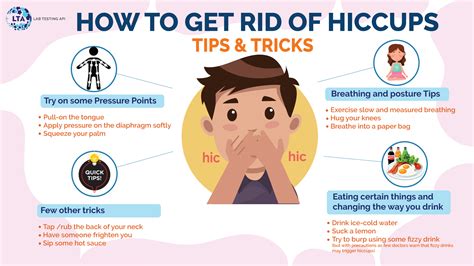How to Stop Hiccups Fast: Proven Home Remedies and Quick Fixes
Hiccups. That annoying, involuntary spasm of your diaphragm that can disrupt anything from a quiet evening to a crucial presentation. While they usually pass quickly, persistent hiccups can be incredibly frustrating. This guide explores several effective methods to stop hiccups fast, ranging from simple breathing exercises to slightly more unusual techniques.
Understanding Hiccups: A Quick Overview
Before diving into the solutions, let's briefly understand what causes hiccups. They're caused by involuntary contractions of your diaphragm, the muscle separating your chest and abdomen. These spasms often result from irritation of the phrenic nerve, which controls the diaphragm. Common triggers include:
- Eating or drinking too quickly: Swallowing air can irritate the diaphragm.
- Sudden temperature changes: Exposure to cold air or cold drinks can trigger hiccups.
- Stress and anxiety: Nervousness can stimulate the phrenic nerve.
- Alcohol consumption: Excessive alcohol intake can also irritate the diaphragm.
Fast and Effective Ways to Stop Hiccups
Now, let's get to the good stuff – the methods that actually work! We've categorized these for easy navigation:
Breathing Techniques: The Simple Solutions
These methods focus on regulating your breathing to calm the diaphragm:
- Holding your breath: Try gently holding your breath for as long as comfortably possible. The build-up of carbon dioxide might help reset your diaphragm. Important: Don't overdo this; if you feel lightheaded, stop immediately.
- Breathing into a paper bag: (Use caution – this is debated) Some people find breathing into a paper bag (or cupped hands) helpful. This increases the carbon dioxide level in your blood, which may help. However, consult a doctor before trying this method, especially if you have respiratory conditions.
- Controlled deep breathing: Practice slow, deep breaths, focusing on inhaling deeply and exhaling slowly. This can help calm your nervous system and relax your diaphragm.
Other Quick Fixes: The Unusual but Effective
These methods might seem a bit odd, but they've worked for many:
- The "scare tactic": A sudden fright can sometimes interrupt the hiccup cycle. However, this isn't recommended for people with heart conditions.
- Drinking cold water: Sipping cold water slowly can sometimes soothe the diaphragm.
- Swallowing a spoonful of sugar: The texture and action of swallowing might help.
- Pulling your tongue: Gently pulling your tongue out for a few seconds might disrupt the hiccup cycle.
- Pressure points: Applying gentle pressure to specific pressure points, such as the area between your eyebrows or on the back of your neck, may provide relief.
When to See a Doctor
While most hiccups resolve themselves quickly, persistent hiccups (lasting longer than 48 hours) warrant a visit to your doctor. This could indicate an underlying medical condition requiring professional attention. Persistent hiccups should not be ignored.
Preventing Hiccups: Proactive Measures
Preventing hiccups is often easier than curing them. Consider these preventative measures:
- Eat and drink slowly: Avoid gulping down food or drinks.
- Manage stress: Practice relaxation techniques like deep breathing or meditation.
- Avoid overeating: Large meals can overstretch your stomach and trigger hiccups.
- Limit alcohol consumption: Excessive alcohol can irritate the diaphragm.
By understanding the causes and employing these effective strategies, you can significantly reduce the frequency and duration of your hiccups. Remember, if your hiccups persist, consult a healthcare professional.
